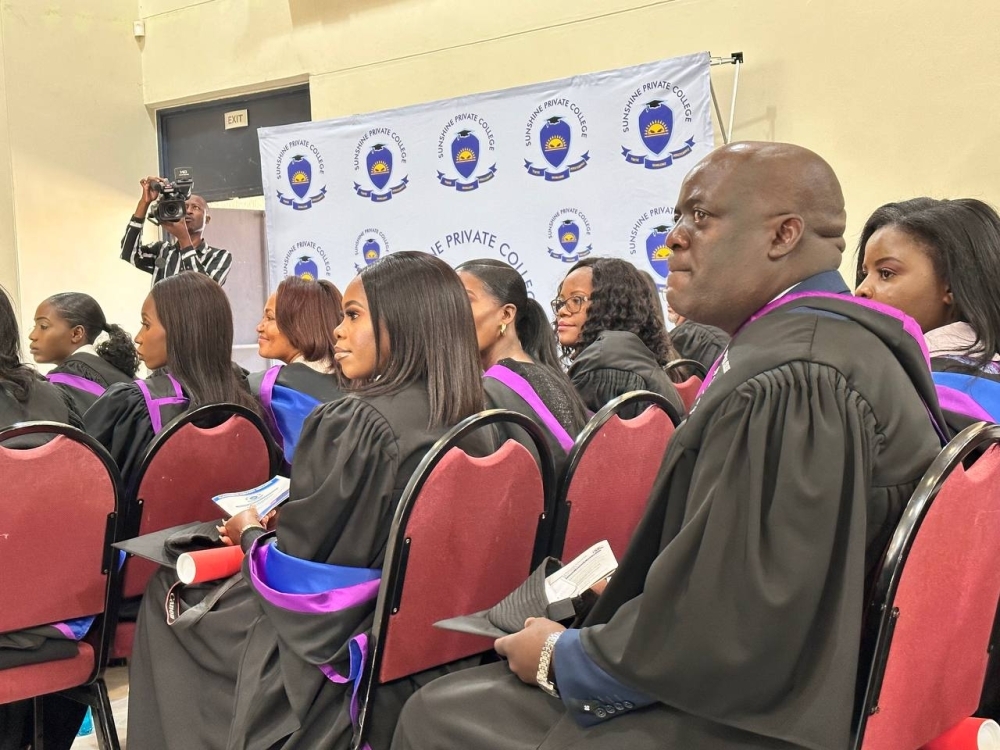Sunshine Private College hosts third graduation ceremony
Building teaching capacity
The ceremony saw 53 students obtain their post-graduate diploma in education.
Junior KapofiSunshine Private College held its third graduation ceremony last week in Windhoek. The graduation ceremony saw 53 students obtain their post-graduate diploma in education.
The college has an increased its number of graduates - 18 in 2020, 12 in 2021, and 53 this year - making it the largest number of graduates the college has seen.
Speaking at the event, director Nomakando Kangira said the curriculum was designed following the guidance of the National Qualification Authority and the National Council of Higher Education.
She added that the graduates embarked on a three-month teaching practice, as this falls in line with work integrated learning.
“It is pleasing to note that most of them got employed either at the schools where they were doing teaching practice or elsewhere,” Kangira said.
In addition, she stated that most of the students conducted research in schools and produced good mini theses, which can easily be published as research articles.
Areas of teaching
Moreover, Kangira said higher education emphasises four areas of teaching: Research, community service, innovation and industrialisation, adding that the institution fully subscribes to this philosophy.
Speaking at the event, education deputy minister Faustina Caley said this post-graduate diploma empowers Namibian educators and will go a long way in building their capacity to package and deliver content in innovative, exciting and easily understandable ways.
Throughput
Caley further touched on the misconception that prevails that anybody who has mastered content can teach and bring about good throughput. “By throughput, I mean the number of students enrolled into a particular programme of study who actually complete their students,” she said.
She stressed that for the ministry and its counterparts across the world, throughput is a major concern. “In southern Africa, throughput is not more than 15%. This is appalling! It is expensive and demoralising,” she said.
“We suspect that one of the reasons why the throughput is so low is because the capacity of our teachers to deliver content has not been sufficiently built.”




Comments
My Zone
No comments have been left on this article